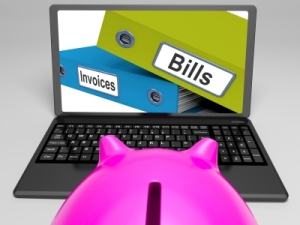If you’re operating a company that uses invoicing to get paid, then you may find yourself in the red when it comes to cash flow. This is particularly true if you provide large amounts of services or products that costs you money up front, but you bill your clients on a 30, 60 or 90 day repayment plan. While it would be nice to demand payment in full upon receipt, there are several industries where this isn’t standard operating procedure, which means that you can lose all of your business completely if you choose to go this route. However, there is a way that you can generate cash flow without changing how your company does business, and this is through invoice factoring.
If you’re new to this concept, you might be asking What is Invoice Factoring? The truth is that the concept is quite simple. You contract with a lender to pay you when an invoice is sent to a customer. You have immediate access to the cash and the lender seeks payment from the client. Once they are paid, your debt is paid to the lender, nothing comes out of your immediate pocket.
It’s important to understand, however, that there are fees associated with factoring, and they can vary between lenders. That’s why it’s so important to get factoring quotes before you choose a lender. This will ensure that you get the best rates for the services that they are providing.
The fees that they charge can vary quite a lot. However, in a lot of cases the fees are based upon the amount of the invoice rather than a flat fee. As an example, if you have an invoice for £100,000 and you’ve contractually agreed to pay the lender 5% of every invoice, then they collect £5,000. Since the lender is collecting on the invoice, you don’t have to actually pay that out of your current funds, it’s already built into the collection of the debt.
In some instances, the lender may also owe you money. Under some agreements, the lender will pay you a certain percentage of an invoice, such as 85%. Once they collect on 100% of the debt, and claim their 5%, then they still owe you 10% of the money. This does depend on the agreement that you make, which is why it’s so important to get invoice discounting.
If you’re not comfortable with the process of finding a lender you can use a broker to help you get your invoice factoring quotes. The good thing about working with a broker is that they work with far more lenders than you’re likely to be familiar with.
While factoring may not be right for every company, it can be a business saver for many. If you’re struggling with making ends meet while you’re waiting to get paid, it’s time to talk to a broker. Let them help you find the right company with which to work to get the money that your business needs.
